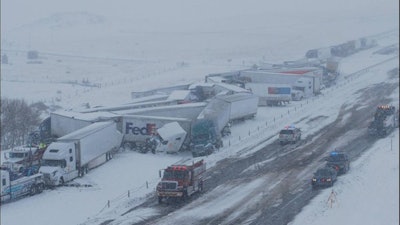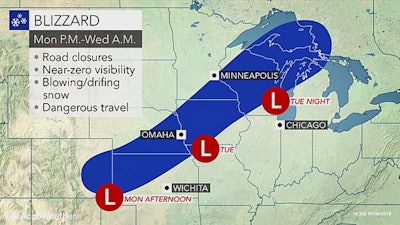
The U.S. northeast is still in recovery mode after a blizzard on Jan. 23 dumped 2 to 3 feet of snow on major metro areas of Washington D.C., Baltimore, Philadelphia, and New York City. Besides delaying or cancelling countless flights, bringing highway traffic to a standstill, and leaving tens of thousands without power for multiple days, the blizzard claimed 14 lives.
Major snow storms like on Jan. 23 cause major disruptions to the operations of distribution companies. Shipments get delayed, and oftentimes basic distribution center operations have to be halted.
In Grainger's fourth quarter earnings report podcast last Tuesday, the company said it had to close 25 branches on Jan. 22 due to the storm, which may affect its late January sales.
"At this point we do not have a clear picture as to the magnitude of lost sales," said Laura Brown, Grainger's senior vice president of communications and investor relations.
For Annapolis Junction, Maryland-based industrial equipment distributor Cummins-Wagner, three of its branches – in Annapolis Junction; Virginia, and Pennslyvania – had to close early on Friday, Jan. 22 in anticipation of the storm. Cummins-Wagner president and CEO Doug Ardinger told me that the company's 3PL providers UPS and Columbia City Parcel Post had limited deliveries and pickups on that Friday afternoon, and virtually no deliveries this last Monday and Tuesday (Jan. 25-26) as clean-up efforts continued in the region.
"This storm was much worse than anything last year or in the last couple of years," Ardinger said. "It was the highest record snowfall in history in Baltimore. But with that said, the impact would have been greater and longer if the storm hadn't happened over the weekend."
Ardinger said the main impact of such a storm for a distributor like Cummins-Wagner is that it changes the regular routine, from shipments, to sales & service calls, to employees getting to work.
A megastorm hit the northeast last year as well, burying the Buffalo, NY and Boston, MA metros.























